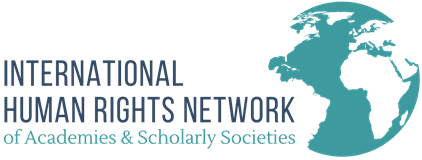
ALLEA
ALLEA – All European Academies is a European federation of academies of sciences and humanities, representing more than 50 academies from more than 40 European countries. Since its founding in 1994, ALLEA has spoken on behalf of its members on the European and international scene, highlighting science and facilitating cross-border scientific cooperation.
The Slovak Academy of Sciences is represented in ALLEA by a member of the SAS Presidium and Deputy Vice President for International Relations, Dr. Martin Nosko.

EASAC
EASAC – European Academies Science and Advisory Council is an independent scientific organisation made up of the scientific academies of the EU Member States, Norway, Switzerland and the United Kingdom.
The Slovak Academy of Sciences is an active member of EASAC and is represented by a member of the SAS Presidium, Dana Jurkovičová, D.Sc.
EASAC documents and publications

ISC
The International Science Council (ISC) is a non-governmental organisation with a unique global membership, bringing together more than 200 international scientific unions and associations, as well as national and regional scientific organisations, including academies and research councils. ISC was founded in 2018 by merging the International Council for Science (ICSU) and the International Social Science Council (ISSC).
The SAS is represented in the ISC by the Vice President for International Relations, Dr. Zuzana Panczová.
IHRN
The International Human Rights Network of Academies and Scholarly Societies (IHRN) is an international consortium of honorary societies in the sciences, engineering, and medicine with a shared interest in human rights. It was founded in 1993 by prominent Dutch human rights lawyer Pieter van Dijk and Nobel Laureates François Jacob (France), Torsten Wiesel (Sweden/United States), and Max Perutz (United Kingdom), to alert national academies to human rights abuses involving fellow scientists and scholars and to equip academies with the tools to provide support in such cases.
Today the IHRN advocates in support of professional colleagues suffering human rights abuses, promotes the free exchange of ideas and opinions among scientists and scholars, and supports the independence and autonomy of national academies and scholarly societies worldwide. The IHRN also raises global awareness of the connections between human rights and science, engineering, and medicine.
Although there is no formal membership, more than 90 academies have participated in IHRN activities.




